7 learnings from running an Airbnb on a Rotorua lifestyle block
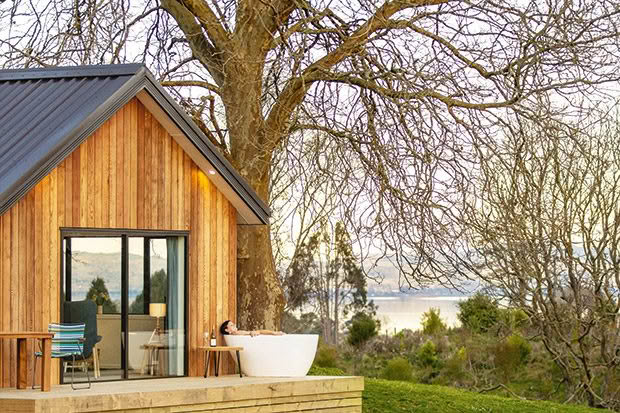
Nestled away on a Rotorua lifestyle block, Wildberry Cottage is a Scandinavian-inspired Airbnb that has taught Paul Charteris many lessons.
Words: Nadene Hall Photos: Paul Charteris
Who: Paul Charteris, Sarah Rosenbaum, Colin & Audrey (children), Hazel & Ruby (dogs)
What: Wildberry Cottage bed & breakfast
Land: 3.3ha (8 acres)
Where: Hamurana, 15 minutes north of Rotorua
Web: airbnb.co.nz/h/wildberrycottage
Paul Charteris and Sarah Rosenbaum opened Wildberry Cottage to guests a year ago and have never had an international booking thanks to Covid travel restrictions. They were still surprised at the numbers of guests, and discovered they weren’t who they’d been expecting.
1. The guests are not who they thought they’d be
The couple envisaged most of their visitors would be couples in their 50s and 60s whose kids had left home.
“We completely misread the market!” Paul laughs. “It’s almost all couples in their 20s and 30s, and they just want to escape the city and have a nice, romantic, relaxing couple of days away from home.”
2. The guests don’t do what they thought they’d do
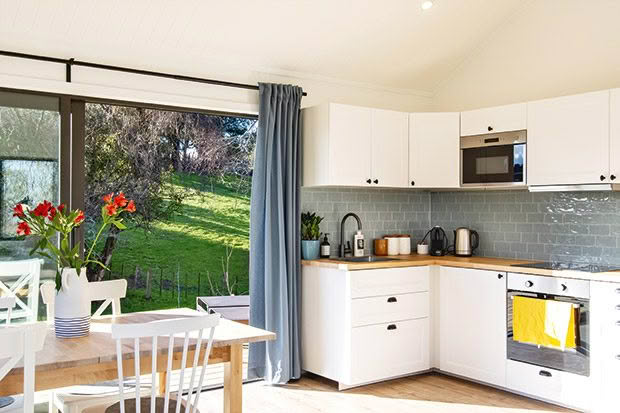
Rotorua is one of NZ’s most popular tourist destinations, thanks to its geothermal pools and adventure attractions.
“That’s what we thought they’d come for: ziplining, hot pools, mountain biking,” says Paul. “But from the very first guest, their car turned up on Friday evening and left again on Sunday morning, and they never left the property. And we kept noticing guests would turn up and not leave until they had to. I think people come here to unwind, switch off, have a nice relaxing time, enjoy being out with the trees, and the cows and sheep and our dogs.”
That led to a second realisation.
“It’s not so much destination-led visitors. It’s accommodation-led – they’re coming specifically for this accommodation rather than for the location.”
3. Invest wisely
A lot of rural Airbnb rentals are old farm buildings, renovated and turned into accommodation. Paul says because they built from new, they were very conscious not to over-capitalise.
“If you’ve got an existing building you can reno, and you’re not sinking that much capital into it. If you’re starting from scratch – and building costs are only going up these days – you may have to be prepared to sink a fair amount of capital into building. That’s a lot of money spent before you get any return back from it, and that was our biggest consideration.”
4. Location, location, location
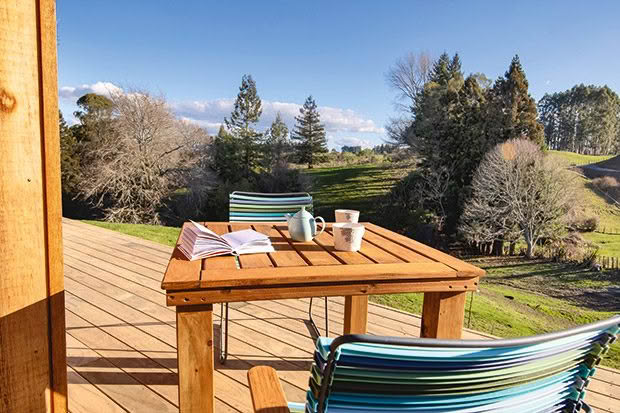
While it helps to have a stylish building in a park-like landscape, Paul says a big drawcard is the location. It feels like it’s in the middle of nowhere, but it’s not.
“It’s literally only 15 minutes to the middle of Rotorua – it’s peace and quiet way out in the countryside but without going out of sight of civilisation.”
Most of their guests are from Auckland, followed by Hamilton and Wellington.
“We’ve had honeymooners, a surprisingly large number stay with us for their anniversaries, we’ve had a marriage proposal. It’s somewhere people think is special enough to do that.”
5. Why domestic guests may be more valuable than internationals
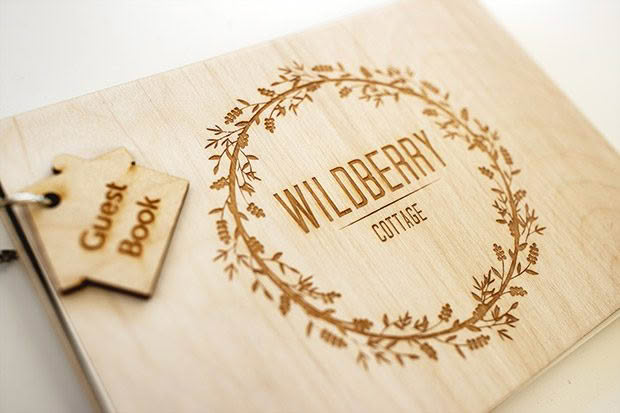
The cottage costs around $200-$250 a night, and Paul says even when there’s more demand from international tourists, he expects they’ll keep it at that price.
“I think we’re offering pretty good value for money; we have bookings all through the week – we thought it would be just weekends.
“I think domestic tourism is going to be more valuable per visitor than international. We’ve had some repeat visitors and they tell their friends, and they come and stay with us as well. But we’ve not had the luxury of international visitors yet, so we’ll see.”
6. It’s hard work
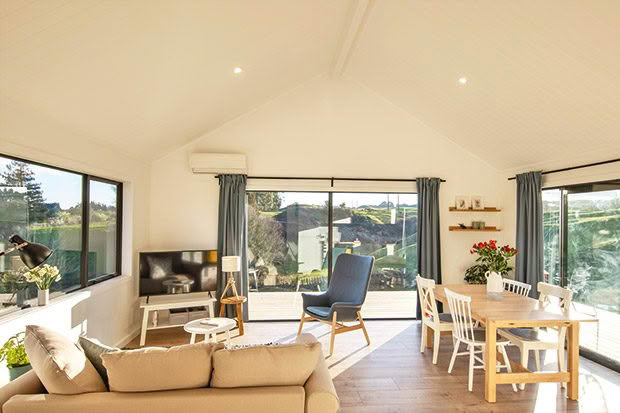
Their cabin has a minimum two-day stay policy and is usually booked out at least a couple of months in advance. It means one lot of guests leave in the morning and new ones arrive in the afternoon.
“You can become a victim of your success,” says Paul. “Every second or third day you’re in there changing the linen and towels, cleaning, sweeping the deck, it’s a fairly hefty time commitment. And that’s not including time spent gardening as well – you know how long it takes to mow a big country lawn. We’ve planted a lot of fruit trees, but it’s still a big time commitment.”
7. Your block isn’t your block
You can’t hang out the laundry naked, says Paul, and having guests can seriously restrict the work you want to do.
“If you’re extremely busy, you may have other people on your block 90% of the time.
“We have farm dogs and one is a huntaway, so we’re conscious how excited we get her because that bark can travel half a kilometre. On a nice clear Saturday morning, I’m raring to get out of bed and fire up the chainsaw, but I can’t if we’ve got someone staying 100m away. Then there’s the quad bike, the wood splitter – you’ve got to be very conscious of what you do and when.”
Love this story? Subscribe now!
 This article first appeared in NZ Lifestyle Block Magazine.
This article first appeared in NZ Lifestyle Block Magazine.
